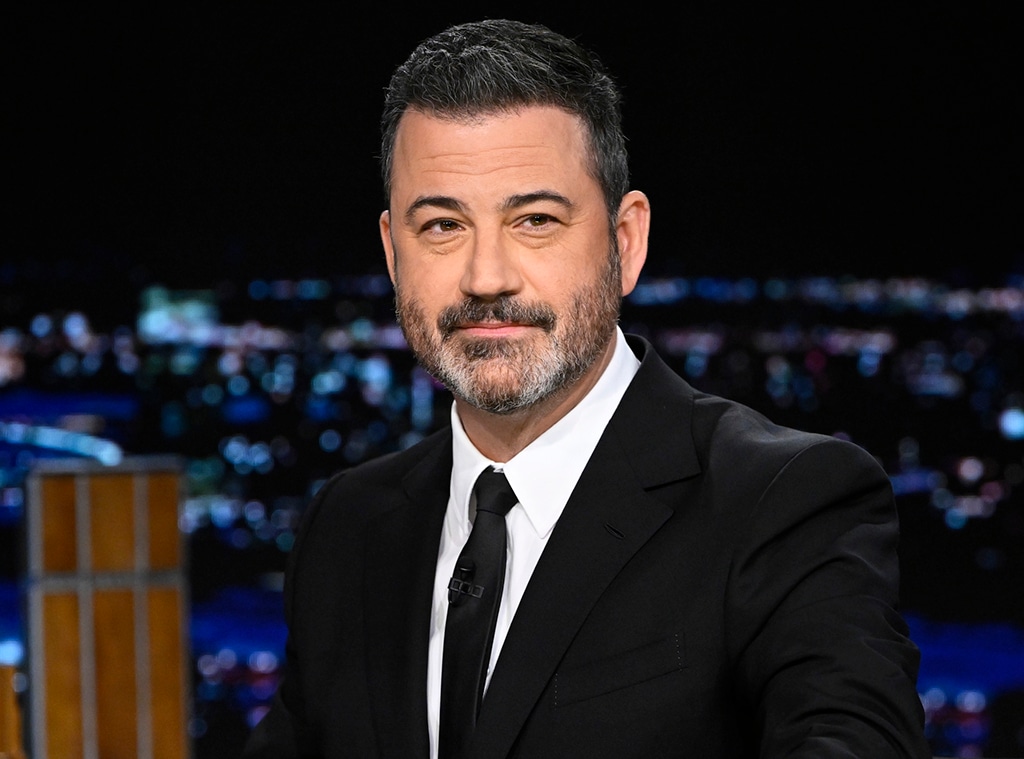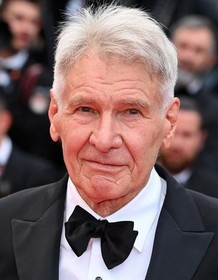Television Chaos: Harrison Ford Walks Off Jimmy Kimmel’s Set After Explosive Exchange

Last night’s episode of Jimmy Kimmel Live was supposed to be a lighthearted celebration of Hollywood — a veteran star promoting his latest film, a crowd ready to laugh, and a host known for his quick wit. Instead, it became one of the most talked-about meltdowns in late-night history, as Harrison Ford stormed off stage after a heated confrontation with Jimmy Kimmel — a clash that immediately lit up the internet.
A Routine Interview Turns Heavy

When Harrison Ford walked onstage, the audience roared. At 81, the man behind Han Solo and Indiana Jones still carried the rugged gravitas that made him a legend. But there was something sharper in his demeanor — a flash in his eyes that hinted the night wouldn’t go smoothly.
Kimmel started in familiar territory: jokes about Ford’s film career, anecdotes about on-set mishaps, and light teasing about his many injuries. The audience laughed, the vibe was warm. But then Kimmel pivoted.
“You’ve been in Hollywood longer than most actors working today,” Kimmel said. “How do you feel about how the industry deals with controversial figures now?”
Ford’s smile thinned. “What do you mean, Jimmy?”
Kimmel pressed. “You’ve seen actors face backlash for things they’ve said or done. Some call it accountability. Others call it cancel culture. Do you ever worry about crossing a line?”
Ford’s hands gripped the armrests. “I think people should be able to voice their thoughts without their careers being shredded by an online mob.”
The Tension Escalates
The studio quieted. Kimmel pushed further. “So you think some people didn’t deserve the backlash? Even when there were serious allegations?”
Ford’s gravelly voice sharpened. “There’s a difference between holding someone accountable for real wrongdoing and erasing someone over an unpopular opinion or a decades-old mistake.”
The audience sensed the shift.
Kimmel leaned in. “But don’t celebrities have a responsibility to be cautious with what they say? Especially on sensitive issues?”
Ford’s reply was blunt: “Cautious by whose standards? Yours? Twitter’s? A network boardroom?”
Kimmel fired back. “When people spread harmful ideas, shouldn’t there be consequences?”
Ford leaned forward, his voice cutting: “And who decides what’s harmful, Jimmy? You? Late-night hosts who think they’re the guardians of morality?”
The room froze.
Kimmel tried to reclaim control. “We’re talking about basic human decency here.”
Ford repeated the phrase slowly, almost scoffing: “Basic human decency. That’s a nice, vague term — it can mean whatever you want it to mean.”
From Interview to Standoff

What began as a spirited discussion had become a live confrontation.
Kimmel’s tone hardened: “We all agree racism, sexism, and bigotry are wrong. Public figures who promote those things should face consequences.”
Ford didn’t back down. “And there you go again — defining the terms to suit your story.”
Kimmel snapped. “Actions have consequences. That’s how the world works.”
Ford’s laugh was sharp. “Or that’s how your corner of Hollywood works. Last I checked, not everyone lives in Malibu.”
Kimmel bristled. “That’s rich coming from someone who’s made millions playing heroes. Maybe you don’t like the real world because it’s more complicated than your movies.”
Ford’s voice dropped to steel. “Don’t preach to me about nuance, Jimmy. And don’t pretend what you do here is more than theater designed to make your audience feel morally superior.”
Kimmel’s voice rose. “I’m having honest conversations about real issues. Maybe that makes you uncomfortable because you’ve spent a lifetime hiding behind characters.”
Ford stood up. The crowd gasped. “When I play a character, I admit it. You hide behind that desk pretending to be something you’re not.”
The Final Blow
Kimmel leaned forward. “What’s that supposed to mean?”
Ford stepped closer, shadow falling over the desk. “It means you sit here every night pretending you’re the voice of reason — when all you’re doing is serving up applause lines. You turn complex issues into punchlines. You divide when you could connect.”
Kimmel’s voice cracked. “I’m not defending hate. I’m not excusing bigotry.”
Ford shot back: “And anyone who disagrees with you — you brand them a bigot. You end the debate by labeling them monsters.”
The tension boiled over.
Kimmel raised his voice. “Maybe some people are monsters. Maybe when you promote ideas that hurt others, you lose the right to polite disagreement.”
Ford’s eyes blazed. “And who made you judge and jury, Jimmy? When did late-night hosts become the arbiters of thought?”
Kimmel shouted: “We’re refusing to platform hate!”
Ford’s reply was cold: “Or refusing to platform anyone who doesn’t parrot your talking points?”
The crowd was silent.
The Walkout
Kimmel’s face flushed. “Maybe the issue isn’t cancel culture. Maybe the issue is people like you can’t handle living in a world where your words have consequences.”
Ford’s voice was icy. “Funny how those ‘consequences’ only ever flow one way.”
“You’re defending privilege,” Kimmel snapped.
Ford stared him down. “No, I’m defending the right to think differently.”
The argument hit a breaking point.
Ford straightened his jacket. “I came here to talk about a movie. Instead, I got a lecture. I’ve seen what real consequences look like, Jimmy — and this performance isn’t it.”
He turned to the stunned audience. “You came for entertainment, not to watch this circus. The real problem isn’t disagreement. It’s people who confuse confrontation with courage.”
With that, Harrison Ford strode off the stage, leaving Kimmel at his desk, rattled and speechless.
Aftermath
Within minutes, clips of the showdown flooded social media. Hashtags like #FordVsKimmel and #HarrisonWalksOut dominated trending lists. Viewers were divided — some praised Ford for standing his ground, others criticized him for walking out.
But one thing was certain: this wasn’t just another late-night interview. It was a live implosion that would go down as one of the most unforgettable moments in TV history.